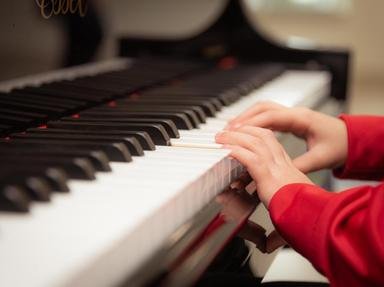Quiz Answer Key and Fun Facts
1. How long was the Camptown racetrack, according to the song "Camptown Races"?
2. In "Polly Wolly Doodle," where is the singer going to see his "Susyanna"?
3. "The farmer in the dell, Hi ho the ----" What's the missing made-up word?
4. "Tramp tramp tramp, the ----- are marching." Who's marching in this song?
5. "Mary had a little lamb," but what was its fleece like? "Its fleece was white as ----."
6. When "Johnny Comes Marching Home," the "men will ---- and the boys will ----." What will the men and boys do?
7. In the song, Yankee Doodle should mind the music and the step, but what is he supposed to be with the girls?
8. What do you do with goober peas, according to the song "Goober Peas"?
9. In the song "Shortnin' Bread," how many children were lying in bed?
10. In "Oh! Susanna," where was the singer supposedly from, with a banjo on his knee?
Source: Author
littlepup
This quiz was reviewed by FunTrivia editor
NatalieW before going online.
Any errors found in FunTrivia content are routinely corrected through our feedback system.

